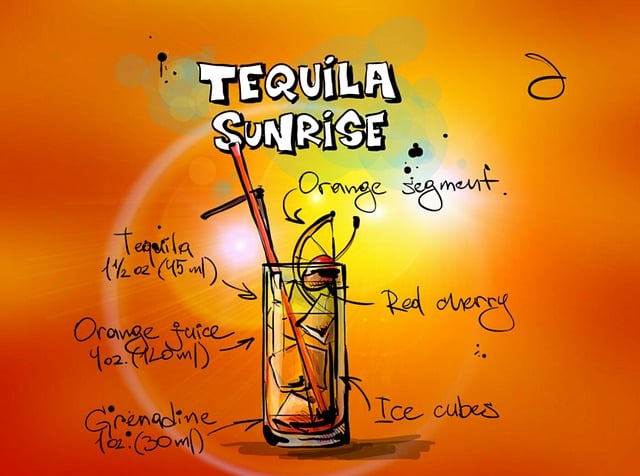Alcohol Rehabs Nashua NH: Navigating Recovery with Professional Treatment Options
In Nashua, NH, addressing alcohol addiction involves understanding its complexities, recognizing sig…….
Over 15% US adults have used prescription painkillers not prescribed to them.
In the pursuit of healing and recovery, individuals struggling with alcohol addiction often find themselves navigating a complex network of support systems and treatment centers. Among these, Alcohol Rehabs Nashua New Hampshire stands as a beacon of hope for many seeking transformation and a new beginning. This article aims to provide an in-depth exploration of this specialized field, unraveling its intricacies, impact, and future potential. From understanding the core principles to examining global trends and technological innovations, we delve into the world of Alcohol Rehabs Nashua New Hampshire, offering valuable insights for both professionals and those seeking guidance.
Definition: Alcohol Rehabs Nashua New Hampshire refers to a comprehensive network of rehabilitation centers and support services dedicated to assisting individuals in overcoming alcohol addiction and achieving long-term sobriety. It encompasses a range of evidence-based therapies, medical care, counseling, and aftercare programs designed to address the physical, mental, and emotional aspects of alcoholism.
Core Components:
Medical Detoxification: The initial phase focuses on safely managing withdrawal symptoms under professional supervision, often involving medication-assisted treatment (MAT) to alleviate cravings and discomfort.
Behavioral Therapies: These include cognitive-behavioral therapy (CBT), motivational interviewing (MI), and contingency management (CM). These therapies help individuals identify triggers, develop coping strategies, and build motivation for change.
Group Therapy Sessions: Facilitated by trained counselors, these sessions encourage peer support, shared experiences, and accountability, fostering a sense of community among participants.
Individual Counseling: Personalized therapy sessions allow clients to explore underlying issues, process emotions, and work on personal growth in a one-on-one setting.
Aftercare Programs: Ongoing support post-rehabs is crucial for long-term success. Aftercare includes alumni programs, support groups (e.g., AA), and family therapy, ensuring individuals remain connected to resources and each other.
Historical Context: The concept of alcohol rehabilitation has evolved over centuries, with early approaches focusing on moral reform and isolation. However, the 20th century saw a shift towards more compassionate, evidence-based practices, emphasizing individualization and holistic healing. Today, Alcohol Rehabs Nashua New Hampshire centers are known for their diverse treatment models, integrating traditional and modern techniques to cater to diverse patient needs.
Alcohol Rehabs Nashua New Hampshire has a significant global reach, with many nations adopting its principles and practices to combat the growing alcohol use disorder (AUD) epidemic. According to the World Health Organization (WHO), approximately 350 million people worldwide struggle with AUD, highlighting the critical need for effective rehabilitation services.
Regional Trends:
North America: The United States and Canada have seen a rise in specialized rehab centers offering comprehensive care, including MAT programs. New Hampshire itself has a robust network of alcohol rehabs, catering to both local residents and those seeking out-of-state treatment.
Europe: Many European countries have implemented national strategies for substance abuse treatment, with the UK and Germany leading the way in research and innovation.
Asia Pacific: Countries like Australia and Japan are investing in accessible rehab facilities, while India is witnessing a surge in private sector participation in providing quality alcohol rehabilitation services.
The economic landscape of Alcohol Rehabs Nashua New Hampshire is multifaceted, influencing both the demand for services and the overall health of the industry.
Market Dynamics:
Demand Drivers: Rising alcohol consumption rates, increasing awareness of AUD as a chronic illness, and growing acceptance of evidence-based treatments drive the demand for rehab services.
Competitive Environment: The market is characterized by both private and public providers, with some centers specializing in specific populations or treatment modalities.
Pricing Strategies: Fees vary based on program intensity, duration, location, and additional amenities. Luxury rehabs cater to high-end markets, while community-based centers offer more affordable options.
Economic Impact:
Job Creation: Alcohol rehab facilities contribute significantly to local economies by creating employment opportunities in healthcare, counseling, administration, and support services.
Healthcare Costs: While initial treatment costs can be substantial, long-term savings result from reduced healthcare expenses related to untreated AUD, as well as decreased crime and social welfare burden.
Technology plays a pivotal role in modernizing Alcohol Rehabs Nashua New Hampshire, enhancing patient care and expanding accessibility.
Innovations:
Telehealth and Online Counseling: Virtual rehab programs allow individuals to access therapy from the comfort of their homes, making treatment more accessible, especially for rural populations or those with limited mobility.
Mobile Apps: Various apps offer digital support networks, providing daily check-ins, meditation guides, and access to recovery resources, complementing traditional therapy.
Wearable Health Devices: These devices monitor vital signs, sleep patterns, and activity levels, offering real-time data for both patients and therapists to track progress and adjust treatment plans.
AI-Assisted Therapy: Artificial intelligence is used to personalize treatment recommendations, predict relapse risks, and provide 24/7 support through virtual assistants.
Future Potential: The integration of technology in Alcohol Rehabs Nashua New Hampshire holds immense promise for improving patient outcomes and increasing accessibility, particularly in underserved communities. As digital health solutions mature, we can expect more sophisticated tools to emerge, shaping the future of addiction treatment.
Government policies and regulations play a crucial role in governing Alcohol Rehabs Nashua New Hampshire, ensuring quality care and ethical practices.
Key Frameworks:
Licensing and Accreditation: Centers must obtain licenses and adhere to accredited standards set by regulatory bodies, guaranteeing a certain level of safety and efficacy in treatment services.
Medicare and Insurance Coverage: Many countries mandate insurance coverage for substance abuse treatment, ensuring financial accessibility. The US, for instance, has laws requiring private insurers to cover rehabilitation services under specific circumstances.
Privacy and Data Protection: Strict regulations govern patient records, ensuring confidentiality and the secure handling of sensitive information.
Influence on Development: Comprehensive policies promote accountability, foster research, and encourage innovation in treatment methodologies. They also help combat stigma by recognizing alcohol addiction as a public health issue, leading to increased investment in rehab services.
Despite its progress, Alcohol Rehabs Nashua New Hampshire faces several challenges and criticisms that hinder its effectiveness.
Main Issues:
Stigma and Lack of Awareness: Stigma surrounding alcohol addiction often prevents individuals from seeking help, underscoring the need for increased public education and awareness campaigns.
Access to Treatment: Disparities in access exist, particularly in rural or underserved areas, where limited resources and transportation issues can be barriers to care.
Financial Constraints: High treatment costs deter some individuals, leading to underutilization of services. This challenge is exacerbated by the lack of insurance coverage or inadequate reimbursement rates for rehab centers.
Relapse Rates: Critics argue that traditional rehab programs have high relapse rates due to various factors, including insufficient aftercare support, lack of personalized treatment, and environmental triggers.
Strategies for Improvement:
Community Outreach Programs: Expanding community-based services and increasing public awareness can reduce stigma and encourage more people to seek help.
Telehealth Expansion: Leveraging technology to offer remote therapy sessions can improve access, especially in rural regions.
Diversifying Treatment Options: Providing a range of treatment modalities, including peer support groups and alternative therapies, can cater to diverse patient needs and preferences.
Strengthening Aftercare: Investing in robust aftercare programs, including alumni networks and extended counseling, is crucial for long-term recovery success.
Case Study 1: Emma’s Journey to Sobriety
Emma, a 32-year-old marketing professional, struggled with alcohol dependence after years of high-stress job demands. She enrolled in a comprehensive rehab program in Nashua, NH, that included medical detox, CBT, and group therapy. The personalized approach, combined with the supportive environment, empowered Emma to overcome her addiction. Post-rehabs, she continued her recovery through an alumni support group, finding ongoing encouragement from peers who understood her journey. Today, Emma is thriving professionally and personally, serving as a testament to the effectiveness of well-structured alcohol rehab programs.
Case Study 2: Overcoming Stigma in Rural New Hampshire
In a small, rural town in New Hampshire, John, a 45-year-old farmer, battled alcohol addiction for years, facing significant stigma from his community. He found hope at a local community-based rehab center that offered both individual counseling and group therapy sessions tailored to the unique challenges of rural residents. The center’s focus on building trust and understanding within a supportive peer group helped John feel accepted and motivated to stay sober. With ongoing aftercare support, he successfully transitioned back to his community, challenging stereotypes and inspiring others to seek help.
The future of Alcohol Rehabs Nashua New Hampshire holds both opportunities and challenges, as the field continues to evolve in response to emerging trends and technological advancements.
Potential Growth Areas:
Personalized Medicine: Advancements in neuroscience and genetics may lead to more tailored treatment plans based on individual biological profiles, improving efficacy and patient outcomes.
Digital Health Integration: As technology advances, expect a seamless integration of digital tools into rehab programs, enhancing accessibility, engagement, and monitoring of patient progress.
Global Collaboration: Increased international collaboration will be vital for sharing best practices, research findings, and resources, particularly in regions with limited access to specialized services.
Emerging Trends:
Neurofeedback Therapy: This innovative approach uses real-time brain feedback to train individuals to regulate their brain activity, potentially offering new avenues for treating alcohol use disorder.
Mindfulness-Based Interventions: Growing interest in mindfulness practices suggests their potential as complementary therapies to enhance coping skills and promote overall well-being.
Strategic Considerations:
Diversity, Equity, and Inclusion (DEI): Alcohol rehab centers must ensure their services are accessible and culturally sensitive, addressing the diverse needs of various demographic groups.
Continued Research and Evaluation: Regular research and evidence-based practice assessments are essential to staying current with effective treatment methodologies and measuring program impact.
Partnerships and Collaboration: Public-private partnerships can leverage resources and expertise, fostering innovation and improving access to quality care.
Alcohol Rehabs Nashua New Hampshire represents a vital component of the global effort to combat alcohol addiction and promote recovery. Through its comprehensive approach, innovative practices, and dedicated professionals, this field continues to make significant strides in helping individuals reclaim their lives from alcoholism. As we look ahead, the future holds immense potential for growth, technological advancements, and collaborative efforts to address the evolving landscape of substance use disorders.
By understanding the intricacies of Alcohol Rehabs Nashua New Hampshire, its global reach, economic impact, and ongoing challenges, we can collectively work towards a more informed and supportive society, empowering those affected by alcohol addiction to find their path to sobriety and lasting recovery.
Q: How do I know if I or a loved one needs professional help for alcohol addiction?
A: If you’re experiencing significant problems related to alcohol consumption, such as loss of control, increasing tolerance, or negative consequences on personal life, work, or health, it’s essential to seek professional help. Seek support if you observe changes in behavior, mood swings, or secrecy around drinking habits.
Q: What are the different types of alcohol rehab programs available?
A: Programs vary widely, offering options like inpatient (residential) care, outpatient services, partial hospitalization, and intensive short-term treatment. Each is tailored to different needs, from those requiring intense medical supervision to individuals seeking maintenance support.
Q: How effective are alcohol rehab centers in preventing relapse?
A: Effectiveness varies based on program quality, individual commitment, and aftercare support. Well-structured programs with long-term follow-up and personalized aftercare plans have shown higher success rates in preventing relapse. Relapse prevention strategies, such as cognitive-behavioral therapy and peer support groups, play a crucial role.
Q: Can insurance cover the costs of alcohol rehab?
A: Many insurance policies provide partial or full coverage for substance abuse treatment. Specifics depend on your plan and location. It’s essential to check with your insurer and understand your benefits to determine financial assistance available for rehab services.
Q: What role does family and peer support play in alcohol recovery?
A: Family and peer support are invaluable in the recovery process. Support groups, alumni networks, and community involvement provide ongoing encouragement, accountability, and a sense of belonging, increasing the chances of long-term sobriety.

In Nashua, NH, addressing alcohol addiction involves understanding its complexities, recognizing sig…….

Alcohol rehabs in Nashua, New Hampshire specialize in dual diagnosis treatment, addressing both subs…….

Alcohol addiction in Nashua, NH, requires specialized treatment at top-rated Alcohol Rehabs Nashua N…….